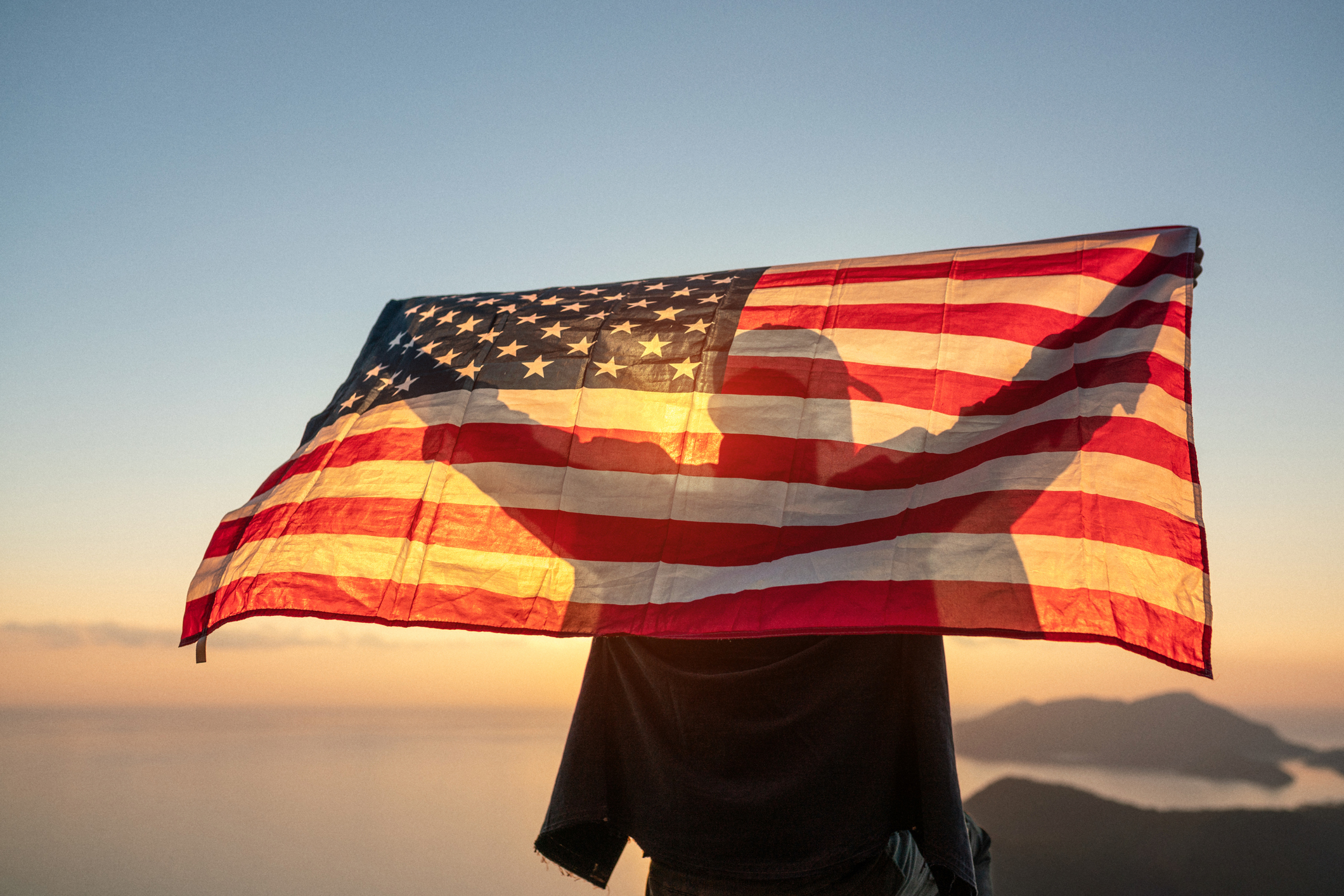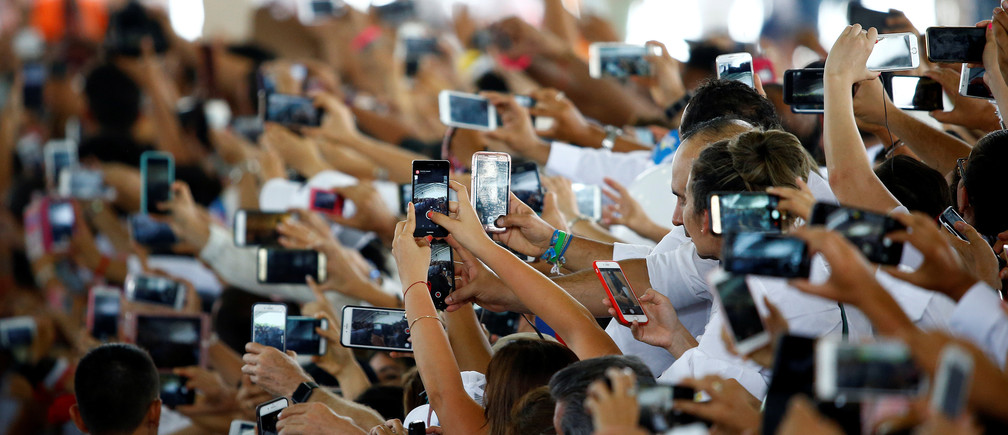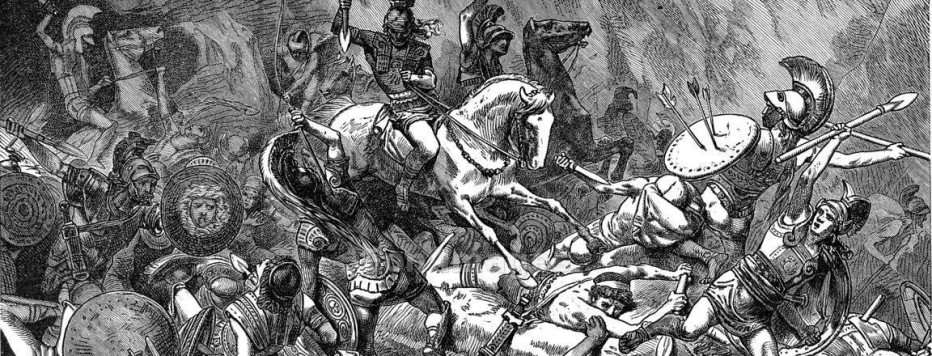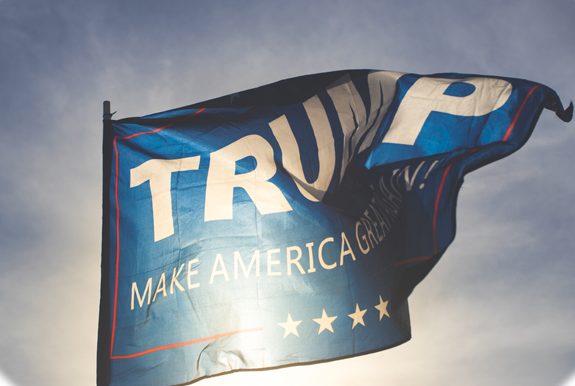Democracy and despotism in a digital age.
A National Revival?

The reaction to Trump’s attempted assassination could rekindle the American Spirit.
You often hear of the American Spirit, but those entrusted to preserve that Spirit have done a poor job describing it. The charisms of the American Spirit may be the topic of books or debate among the intellectual Right—but it surely is not approachable to the common man. Mass media presentations of the American Spirit are typically done in such a lackluster, dweebish way that much of the public doesn’t pay attention, thinking, “No, this can’t be it.” It’s this lack of comprehension that has given the Left the confidence to redefine the American Spirit through a series of woke social initiatives and legislation.
It’s apparent that many Gen Xers and younger generations have grown disenchanted with the country. Anecdotal evidence ranges from the dwindling number of American flags hanging up in front yards to last year’s TikTok trend of rationalizing Osama bin Laden’s Letter to America. I find these behaviors abhorrent.
There are myriad statistics that show how milquetoast much of society has become. Young adults are choosing to live in their parent’s homes well past the time they should leave. The advent of the “forever girlfriend” and younger generations’ crippling mental health issues render it impossible to simply go outside—all of this is emblematic of the lack of encountering the American Spirit. It’s a vicious cycle.
However, I wonder if the Right shares some responsibility by not providing a sufficient account of the American Spirit. Following the logic of Christianity, if faith is sustained by a personal encounter and not simply by liturgical participation, we therefore can’t place exclusive blame on the unfaithful American who doesn’t know the Spirit due to ignorance.
In an attempt to give the least eggheadish explanation of the American Spirit possible, I turn to highlighting examples of valor in response to the unknown. Valor is different than courage. Valor demonstrates action inspired by morality, whereas immoral actors can still act courageously. Moments like the drafting and signing of the Declaration of Independence and Lincoln’s decision to rid the country of slavery were valorous responses. Same with the paratroopers dropping into enemy fire on D-Day and New Yorkers quite literally lifting each other up on September 11.
But this same Sprit is not just present in the extraordinary. It can be encountered in immersing yourself in our nation’s beautiful and expansive landscape. Its why the expansion of the American West is so often referenced as an example of the American Spirit.
The American Spirit was on display to the public in the failed assassination attempt on President Donald Trump, as it was in his valorous response. Pumping his fist in the air, commanding not just the rally-goers but all Americans to “Fight! Fight!” is valor in the face of the unknown. That showcase of American Spirit captivated both Republicans and Democrats alike. Many Americans were in some way possessed by the Spirit on July 13. The Spirit was ignited so much so in Mark Zuckerberg—who has an ambivalent history with Trump and the Republican Party—that he proclaimed in a recent interview, “Seeing Donald Trump get up after getting shot in the face and pump his fist in the air with the American flag is one of the most badass things I’ve ever seen in my life.” And others, in less flashy ways, have too been possessed by the American Spirit. It’s why increasing numbers of people are publicly saying that they’ll be voting for Trump in November, just as Amber Rose did at the Republican National Convention. Your leftie friends are encountering the Spirit, making them question their axiomatic presuppositions and reconsider the legitimacy of the Left’s agenda.
Will this public encounter with the American Spirit spark some sort of American revival? I am far too cautious to make that claim. Americans were possessed by the American Spirit in the wake of 9/11, and we saw the direction the country took in the decades that followed.
My prayer is that July 13 serves as a defining moment for many Americans, specifically young Americans. I hope that seeing valor in the face of the unknown makes them chase the Spirit in more private ways. I hope they go back to school next month more critical of their professors’ woke ideology, or conquer their “crippling agoraphobia” and take that road trip up the Oregon coast, the one they’ve always dreamed of.
We all have a Frostian two-road decision to make: do we chase the Spirit or do we ignore it? Chasing it will not only lead to personal exploration and growth but to a country that is both safer and more prosperous. Ignoring it may lead us closer to collapse. If you chase the Spirit, I plead that you become a true disciple. A core tenant of true discipleship is evangelization, especially to those most in need. Use this opportunity not simply to discuss this defining American moment with your right-leaning friends, but also your friend from college, your child, or your spouse. Be an instrument of the American Spirit.
The American Mind presents a range of perspectives. Views are writers’ own and do not necessarily represent those of The Claremont Institute.
The American Mind is a publication of the Claremont Institute, a non-profit 501(c)(3) organization, dedicated to restoring the principles of the American Founding to their rightful, preeminent authority in our national life. Interested in supporting our work? Gifts to the Claremont Institute are tax-deductible.
In 2010, Claremont Institute Senior Fellow Angelo Codevilla reintroduced the notion of "the ruling class" back into American popular discourse. In 2017, he described contemporary American politics as a "cold civil war." Now he applies the "logic of revolution" to our current political scene.
Claremont Institute Senior Fellow John Marini is one of the few experts on American Government who understood the rise of Trump from the beginning of the 2016 election cycle. Now he looks to the fundamental question that Trump's presidency raises: is the legitimacy of our political system based on the authority of the American people and the American nation-state, or the authority of experts and their technical knowledge in the service of "progress"?




